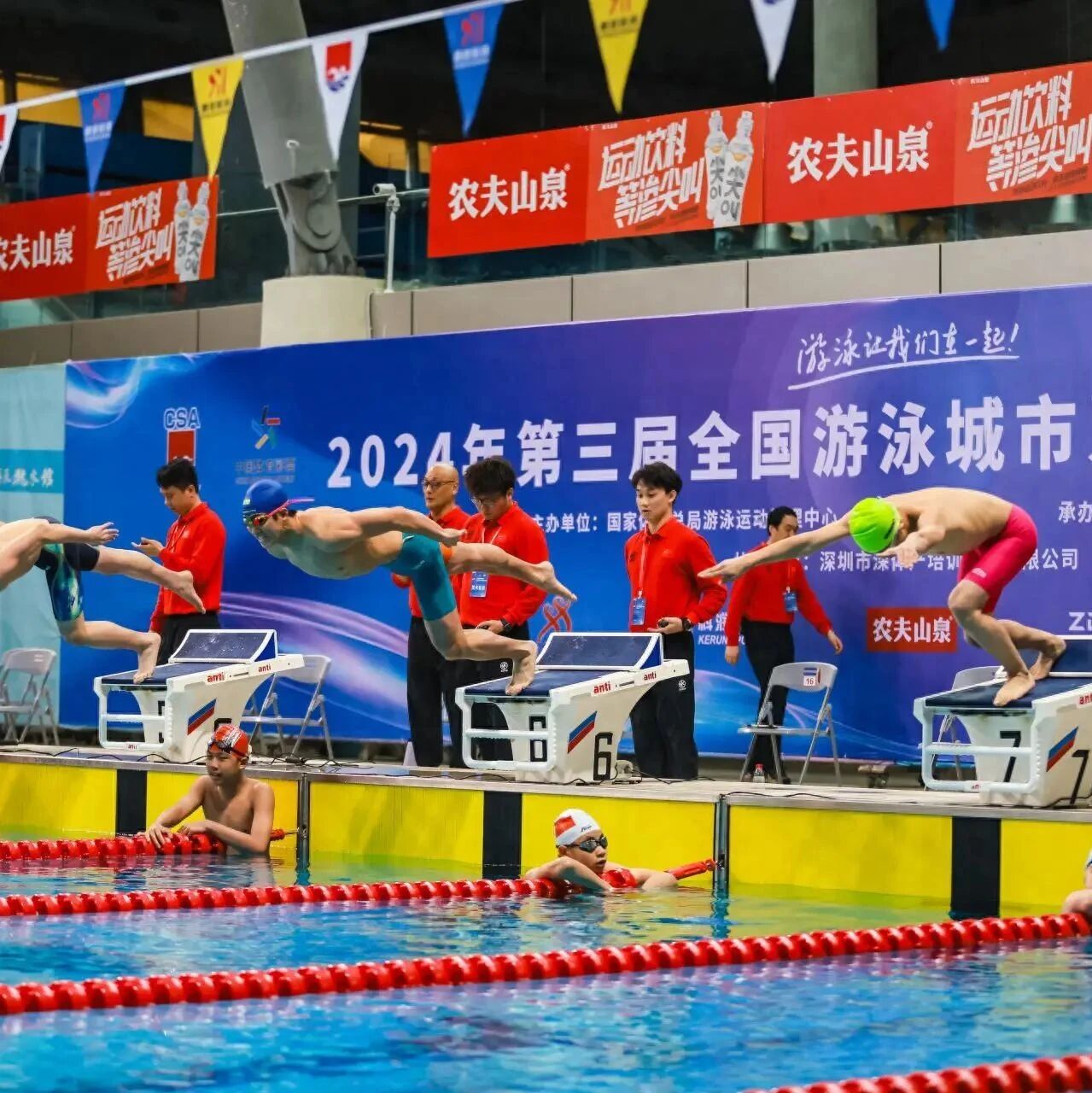Men's 100m Freestyle World Record: Reaching New Heights (4)
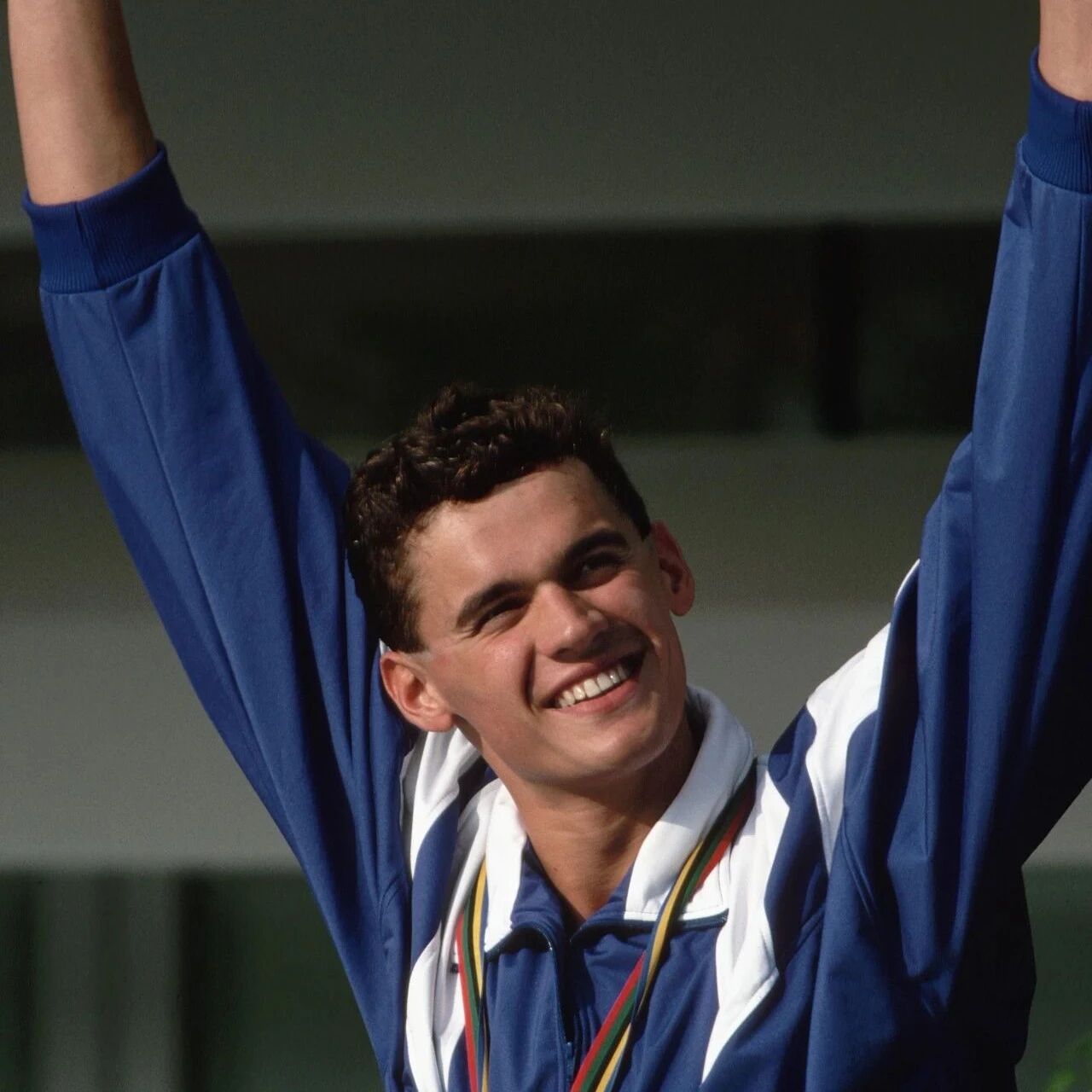


Matt Biondi
October 8, 1965 – United States
Matt Biondi was the first athlete to swim the 100-meter freestyle in under 49 seconds. He achieved this feat three times, setting the men’s 100-meter freestyle world record on August 6, 1985 (48.95), June 24, 1986 (48.74), and August 10, 1988 (48.42). Throughout his competitive career, he broke the world record a total of 12 times. Renowned for his outstanding performances in short-distance freestyle events, he earned legendary nicknames such as "King of World Freestyle," "Torpedo," and "The World's Fastest Fish."
Biondi was involved in basketball throughout his youth and became a standout player in the local league. Standing at 1.98 meters tall and weighing 88 kilograms, he certainly had the physique of a professional basketball athlete. Though Biondi began swimming at the age of 5—though never receiving formal training—he didn’t start taking the sport seriously until high school, when he finally picked up competitive swimming and went on to set the American record in the 50-meter freestyle. Later, he earned admission to the University of California, Berkeley, where he joined the university’s water polo team and quickly established himself as one of the world’s top competitors.
Biondi made the U.S. Olympic swimming team in 1984, where he teamed up with his fellow swimmers to help the American squad clinch the gold medal in the men’s 4x100-meter freestyle relay at the Los Angeles Olympics—breaking the world record in the process. In August 1985, at the U.S. National Swimming Championships, he twice shattered the men’s 100-meter freestyle world record, clocking times of 49.24 seconds and 48.95 seconds, earning him the title of "the fastest swimmer in the world." He also competed in both the 4x100-meter freestyle and 4x100-meter medley relays, delivering remarkable performances with times of 3:17.08 and 3:38.28, respectively—both of which set new world records in their own right.
In 1986, Biondi dominated every swimming competition he entered, clinching one championship after another and once again setting world records in the 100-meter and 50-meter freestyle events. At that year's World Championships, he also claimed an impressive seven medals—three golds, one silver, and three bronzes.
At the 1988 Seoul Olympics, Biondi delivered a stellar performance, winning five gold medals (in the 50m and 100m freestyle, the 4x100m medley relay, the 4x100m freestyle relay, and the 4x200m freestyle relay) along with one silver medal (in the 100m butterfly) and one bronze medal (in the 200m freestyle). Notably, he broke the world record in both the 50m freestyle and all three relay events, cementing his status as a true superstar on the Olympic swimming stage.
By 1992, at the Barcelona Olympics, Biondi secured just one gold medal—in the 4x100m freestyle relay—before officially announcing his retirement from competitive swimming.
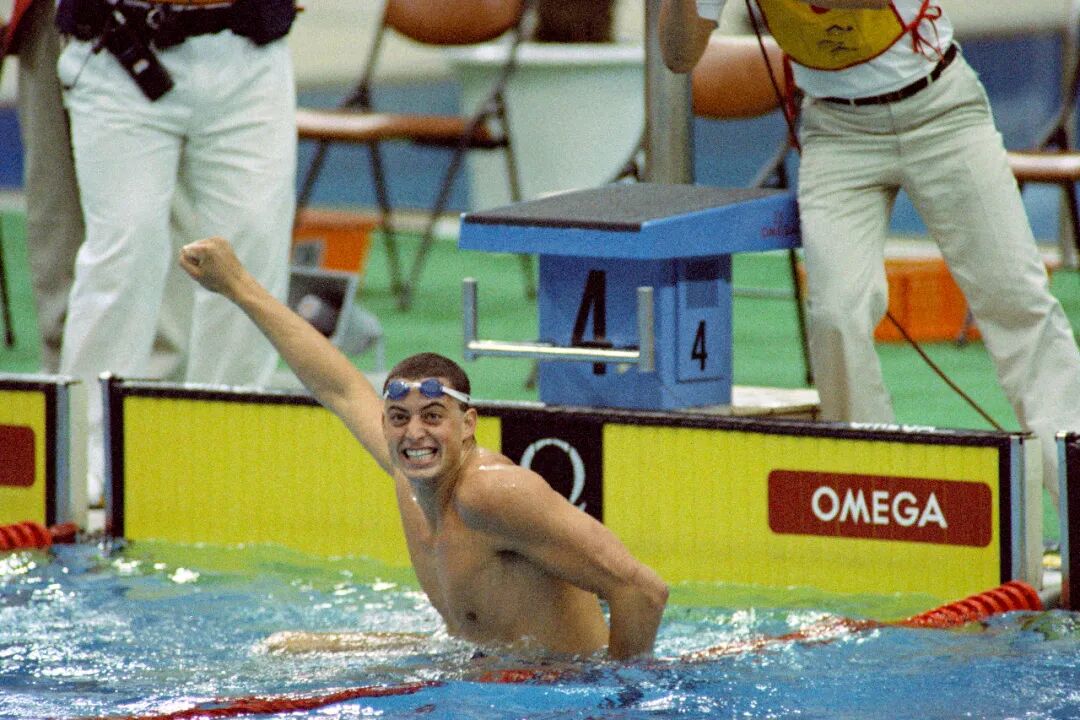 On September 22, 1988, Matt Biondi broke the world record in the 50-meter freestyle and won the gold medal at the Seoul Olympics.
On September 22, 1988, Matt Biondi broke the world record in the 50-meter freestyle and won the gold medal at the Seoul Olympics.
During Piero's swimming career, the men’s 100-meter butterfly final at the 1988 Seoul Olympics remains unforgettable. At the time, Piero was widely regarded as the clear favorite to win—yet he lived up to expectations, slicing through the water with relentless determination and leaving his competitors far behind. As he neared the finish line, overwhelmed with excitement, he raised both arms high in triumph, the first to celebrate his victory right there in the pool. The entire arena instantly erupted in cheers, with waves of applause rising one after another. But to everyone’s astonishment, the massive scoreboard didn’t display Piero’s name—it showed Anthony Nesty, the celebrated Surinamese swimmer who edged out Piero by a razor-thin margin of just 0.01 second to claim the gold medal.
The audience was stunned, followed by an uproar. They watched intently as the race officials replayed the final sprint in slow motion—and realized that, at the very moment of crossing the finish line, Biondi had stopped maintaining his competitive butterfly stroke, instead letting inertia carry him straight to the wall. Meanwhile, Nesty showed no sign of slowing down, powering through with his signature butterfly technique until he nearly crashed into the wall ahead. In that crucial final stretch, Nesty managed to surge past Biondi, pulling off the biggest upset of the entire competition. It was dubbed the "Miracle of 0.01 Seconds."
For Biondi, those 0.01 seconds were undoubtedly unforgettable—yet the real regret wasn’t about not having a chance to win, but rather losing when victory seemed all but assured.
Alexander・Popov(lexander Popov)
November 16, 1971 – Russia
Popov was the king of short-distance swimming in the 1990s. When he started learning to swim at the age of 8, he was terrified of water—but his father’s encouragement kept him going. At 17, he joined the Russian national team, specializing exclusively in backstroke. In 1990, at just 19, Popov followed the advice of Gennadi Touretski, Russia’s renowned swimming coach, and switched to freestyle. The very next year, he claimed the European Championship title in the men’s 100-meter freestyle.
At the 1992 Barcelona Summer Olympics, Popov was in sixth place at the halfway mark during the 100-meter freestyle race, but he staged a remarkable comeback in the final 50 meters, surging past every other athlete to claim the gold medal.
Two days later, in the 50-meter freestyle race, Popov went head-to-head against two of the world’s top swimmers: Matt Biondi and Tom Jager. As the starting signal sounded, ripples instantly rippled across the pool, and soon enough, everyone was stunned to see that, during the final 10-meter sprint, it wasn’t Biondi or Jager who surged ahead—but rather the lean, towering figure of Popov. Just seconds later, he touched the wall first, smashing the world record with a time of 24.18 seconds and clinching his second Olympic gold medal. Additionally, he claimed two silver medals in the relay events.
On June 18, 1994, Popov set a world record in the men's 100-meter freestyle at the International Swimming Meet in Monte Carlo, clocking a time of 48.21 seconds.
At the 1996 Summer Olympics in Atlanta, USA, Popov successfully defended his title in the 100-meter freestyle, becoming only the second athlete in Olympic history to win back-to-back gold medals in the 100-free. Three days later, in the 50-meter event, Popov once again claimed victory, securing his fourth Olympic gold medal overall. He also added two more silver medals in the two relay events, cementing his position at the pinnacle of his athletic career.
Unfortunately, Popov spent the following month in the hospital’s intensive care unit. On August 24, 1996, he got into an argument with a watermelon seller on a Moscow street over the purchase of a melon—and was subsequently stabbed in the abdomen. The attack caused critical damage, including ruptures to his arteries, kidney, and pleura, even affecting his lungs. After more than three hours of emergency surgery, Popov miraculously survived. Remarkably, just three months later, he returned to the pool, clinching the gold medal in the freestyle event at the 1997 European Swimming Championships.
Afterward, at major international swimming events, Popov sliced through the shimmering blue waters with unmatched speed and dominance, earning him the titles "Tsar of Sprinting" and "Russian Rocket." Experts emphasize that the key to winning in short-distance freestyle lies in stroke frequency—and Popov’s freestyle technique is the most frequently emulated style in the sport. Though he often appeared to glide at a slower pace than his rivals, his ability to maintain an incredibly high stroke rate allowed him to outpace them effortlessly. Watching Popov compete is nothing short of a thrilling, exhilarating experience.
At the 2000 Sydney Olympics, Popov claimed the silver medal in the 100-meter freestyle and finished sixth in the 50-meter event. Yet, this Olympic Games didn’t mark the end of Popov’s legendary career—instead, at the age of 32, he delivered a stunning comeback at the 2003 World Aquatics Championships in Barcelona. There, he boldly outpaced two of swimming’s rising superstars: Dutch sensation Pieter van den Hoogenband and Australia’s "Torpedo" Ian Thorpe, clinching victory once again in the 100-meter freestyle. The entire crowd erupted into a standing ovation that lasted well into the afterglow. Even Pieter van den Hoogenband was left in awe of Popov’s commanding presence and sheer dominance—a testament to his enduring legacy, as the span between his first and last World Championship title stretched an impressive 12 years.
The 2004 Athens Olympics marked Popov’s farewell competition. After he failed to reach the finals in both the men’s 100m and 50m freestyle events, global media unanimously hailed the moment with the headline: "The End of the Popov Era." In 2005, Popov officially announced his retirement, drawing swimming legends from around the world to a special farewell dinner. During the event, Thorpe praised him, saying, "You inspired an entire generation of swimmers—and it was you who ignited my own passion for the sport." Meanwhile, American Olympic champion Michael Phelps remarked, "Competing alongside Popov will always be a true honor for me." And Dutch star Pieter van den Hoogenband added, "Popov is nothing less than a legend in the pool."
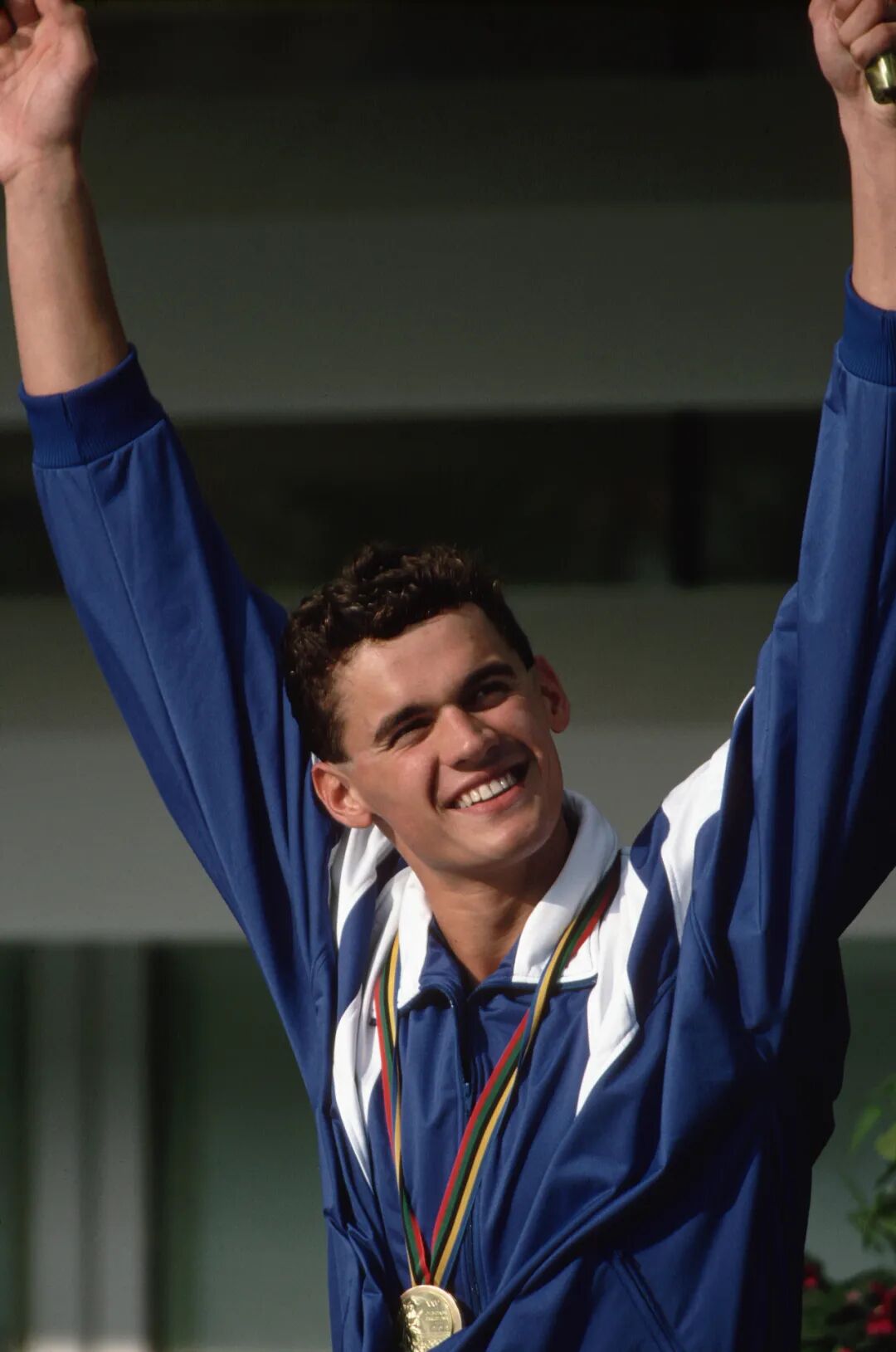 Bobov has a slender, elongated physique, a handsome and elegant appearance, and an exceptionally charming demeanor—truly a rare superstar in the swimming world. While his competitors eagerly donned full-body swimsuits, he consistently competed wearing the classic, traditional short swim trunks.
Bobov has a slender, elongated physique, a handsome and elegant appearance, and an exceptionally charming demeanor—truly a rare superstar in the swimming world. While his competitors eagerly donned full-body swimsuits, he consistently competed wearing the classic, traditional short swim trunks.
After retiring, Popov was elected as the First Vice President of the Russian Swimming Federation, concurrently serving as a member of the Russian Presidential Sports Commission and the International Olympic Committee’s Athletes’ Commission. Every week, Popov visits the swimming pool three times to maintain his fit and athletic physique.
Popov enjoys a happy family life—his wife was once a swimmer on the Russian national team, and together they have two sons. He jokes that if his sons ever decide to swim in a relay race together, he might not even be able to keep up with them. Still, he emphasizes that he’ll never push them to follow in his footsteps; after all, the future is theirs to shape however they choose.
Michael Krim(Michael Klim)
1977.8.13- Australia
September 16, 2000,KrymSetting a world record in the men's 100-meter freestyle at the Sydney Olympics—48.18 seconds.
Klim was born in Poland and moved to Australia with his parents in early 1991. Five years later, in 1996 at the Atlanta Olympics, he helped the Australian men's 4x200m freestyle relay team finish third, earning his first Olympic medal. At the 2000 Sydney Olympics, he claimed gold medals in both the 4x200m and 4x100m freestyle relays, setting world records in the process, and also won a silver medal in the 100m butterfly. In 2004 at the Athens Olympics, Klim secured another silver medal in the 4x200m freestyle relay.
Compared to freestyle, Klim excelled even more in butterfly, breaking the world record in the event multiple times.
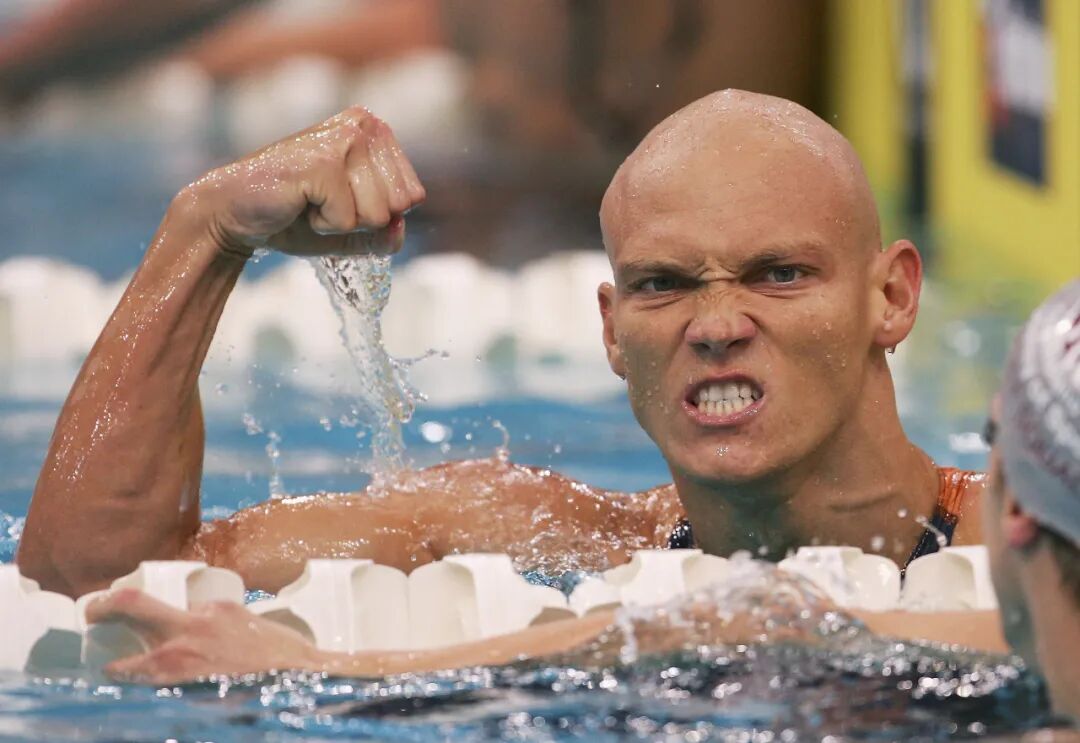 Klim is remembered for his distinctive bald head, a unique look in the swimming world.
Klim is remembered for his distinctive bald head, a unique look in the swimming world.
Recommended:
Men's 100m Freestyle World Record: Reaching New Heights (1)
Men's 100m Freestyle World Record: Reaching New Heights (2)
Men's 100m Freestyle World Record: Reaching New Heights (3)

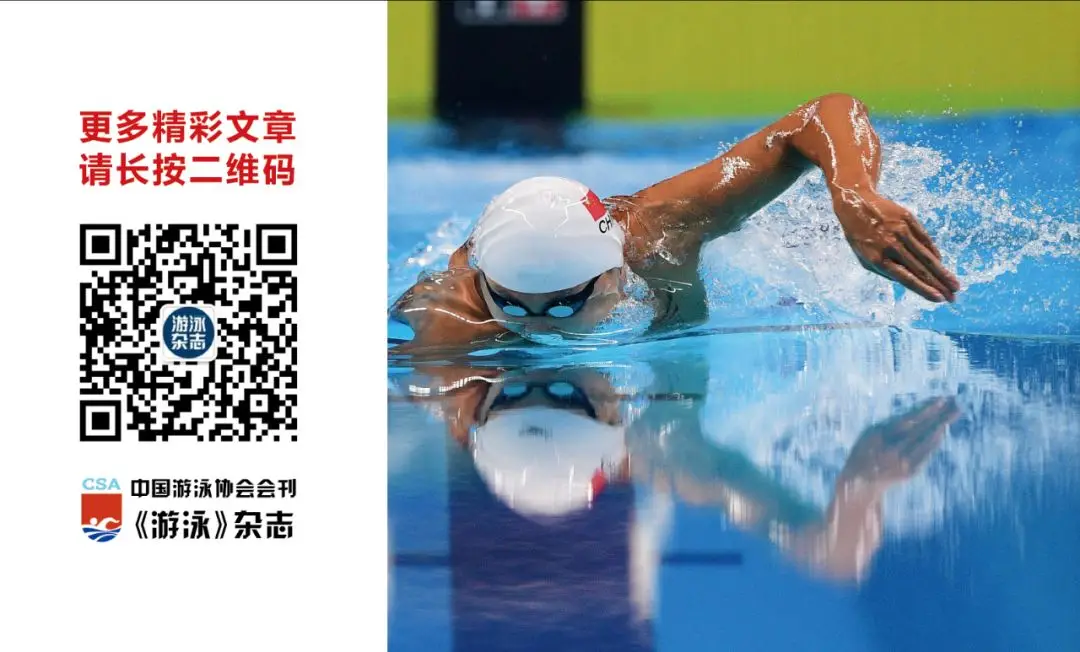
Related Articles
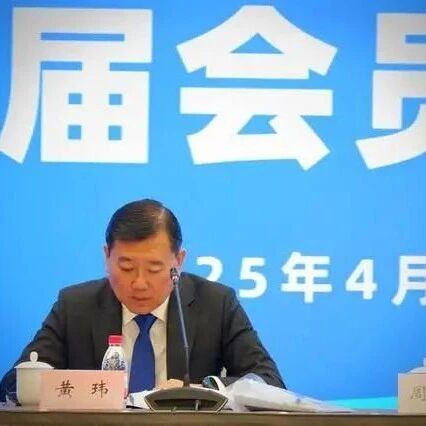
Huang Wei Appointed Director and Party Secretary of the Swimming Sports Management Center
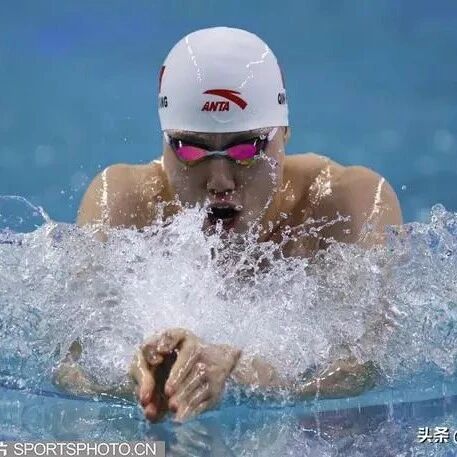
National Spring Swimming Championships | Last night! Qin Haiyang wins gold in the men's 200m breaststroke, while Yang Peiqi claims gold in the women's 400m freestyle.
